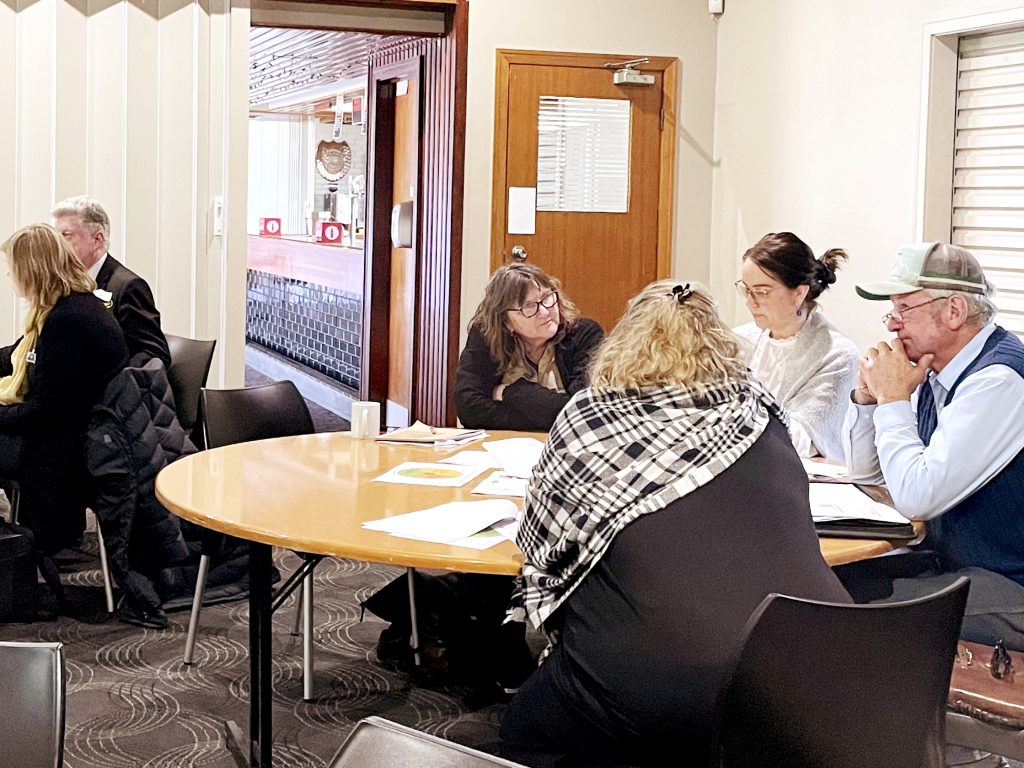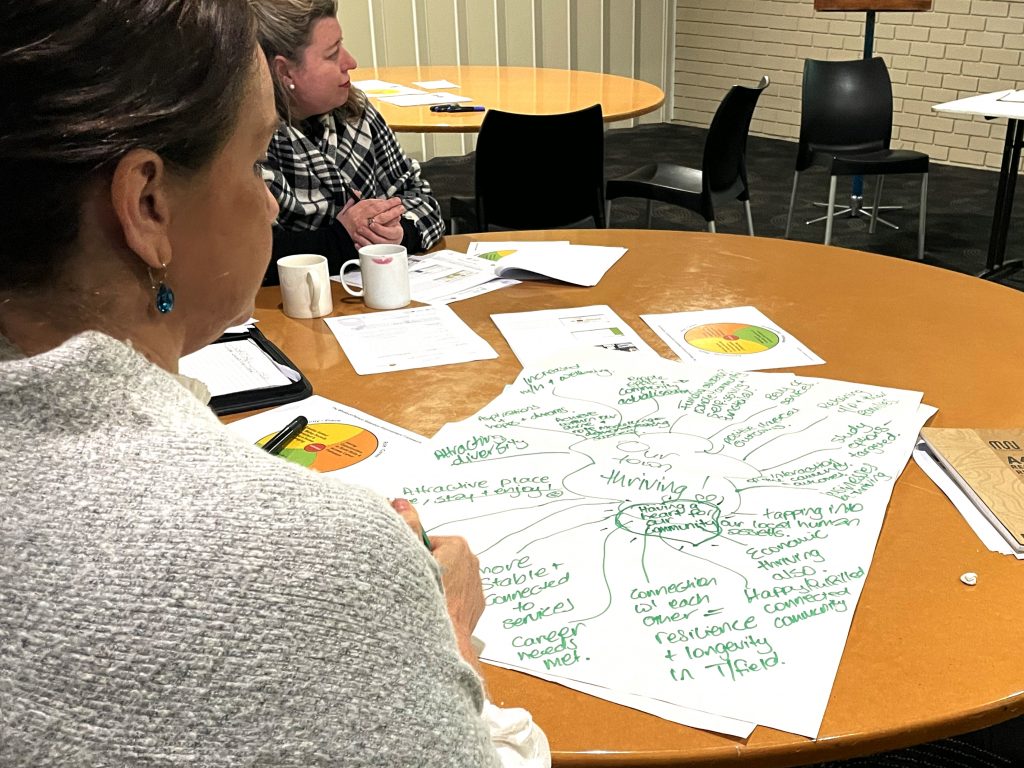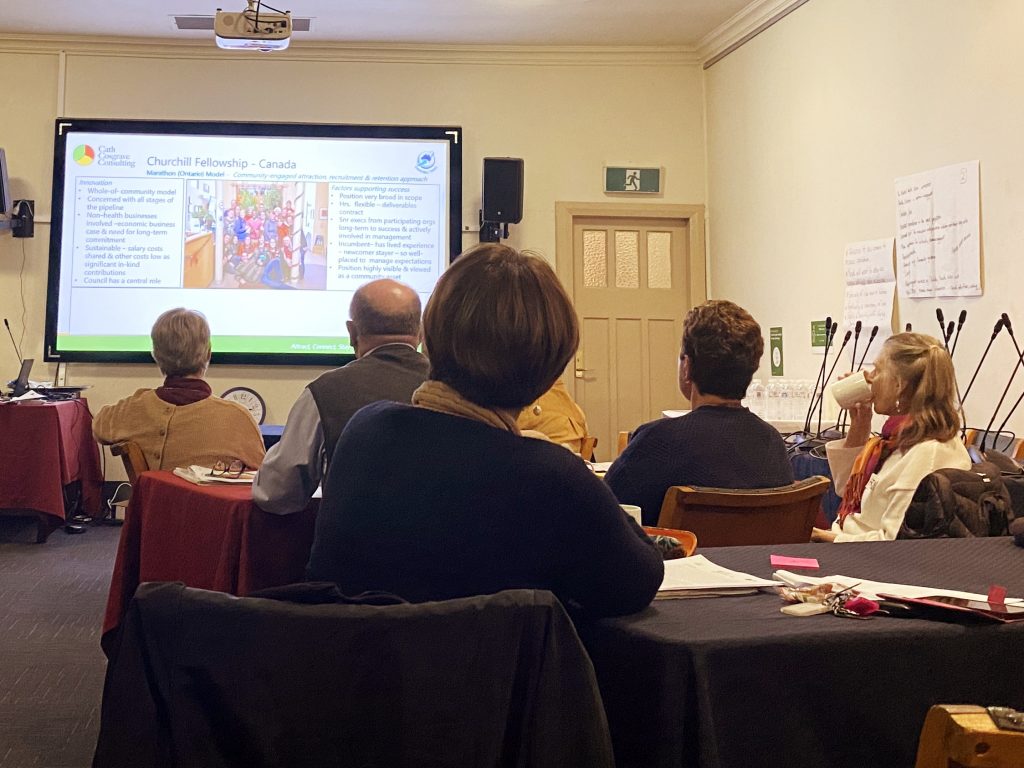Annual Review stories Community stories: 5 October 2021
Nari Nari Country
On average, people in rural and remote Australia experience much higher rates of chronic disease, avoidable illness, and are far more likely to be hospitalised in circumstances where earlier access to the right care could have prevented it. Sadly, they also find it much harder to access allied health professional services: they are often thin on the ground or not there at all.
One of the main reasons for this is the difficulty in attracting and retaining rural health workers, leading to serious gaps and inequity in access to preventative and primary health care in rural and remote areas. While connection to community and place is increasingly being identified as an important factor for retention, there are few examples of how rural communities can foster or create these conditions in a systematic way.
But one organisation is trying to help resolve this. Services for Rural and Remote Allied Health (SARRAH) is a grassroots organisation advocating on behalf of rural and remote Australian communities to have access to allied health services. SARRAH is also the peak body representing rural and remote allied health professionals (AHPs) working in public, private and/or community settings.
They received a grant for just over $140,000 through FRRR’s Enhancing Country Health Outcomes (ECHO) program, funded by Beyond Medical Education, to address persistent rural health workforce shortages in small rural and remote towns in NSW and Victoria through a project leveraging Rural Health Workforce Coordinators (RHWC).
The project team is headed by Dr Cath Cosgrave, a leading research academic in the field of rural health workforce attraction and retention.
Generally, retention research has focused on the influence of organisational and role conditions, however how individuals feel and perceive their acceptance into a community is increasingly proving to significantly influence retention. Dr Cosgrave’s findings, along with other research, indicate that the decision of a health professional to take up, stay or leave a rural position involves personal, organisational and social considerations. People who relocate to a rural place for work and have persistent feelings of social alienation and loneliness will always leave, irrespective of whether the position is financially beneficial.
That’s the key insight that informed the creation of the Attract, Connect, Stay project, which is based on a successful model developed in Marathon, Canada. The translation of this model into the rural Australian context will benefit not just the communities involved in the project but develop tools and resources that can be applied more broadly.
The project involves a whole-of-community approach to supporting health professionals and their partners / families when moving into a new rural community to help them to feel settled, become socially connected, and experience a sense of belonging, all identified as essential conditions for retention.
Planning commenced with three New South Wales pilot local government areas in August 2021: Glen Innes, Gwydir Shire and Narrabri. These communities will be supported through a series of co-designed workshops to form a network of community, local government, businesses and health service representatives. These networks will go on to jointly develop, fund, recruit, appoint, manage and monitor the RHWC position and its’ success in attracting and retaining suitable health professionals to fill health service gaps in each community.
Learnings from the three NSW primary sites will be captured in prototype tools and resources, and further tested in two secondary sites in rural Victoria. The project will conclude with a launch of a purpose-built website where the refined tools and resources will be made available to the public. This will allow other communities to use the tools and resources to help design local approaches to address gaps in their own primary and preventative health workforces.
“We need to see more community-led and innovative projects like Attract, Connect, Stay to ensure rural and remote communities have access to health professionals to the same extent as their city-based counterparts.”
Cath Maloney, SARRAH CEO




